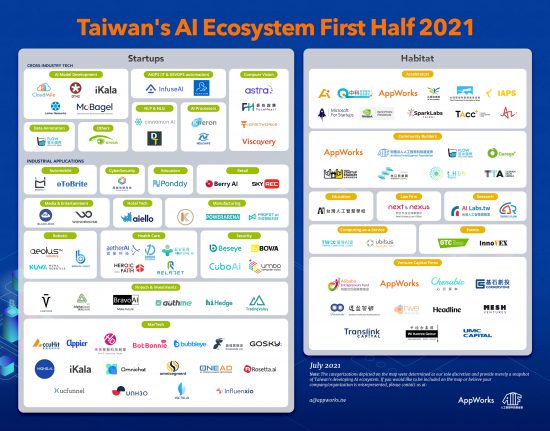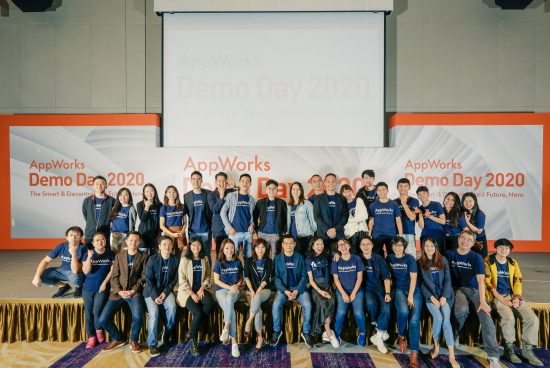
Natalie Lin, Analyst (林楓 / 分析師)
Natalie is an Analyst covering AppWorks Accelerator and Greater Southeast Asia. Before joining the team, she worked in the search engine marketing and email marketing teams at Zappos, America’s leading shoes and fashion online retailer, where she primarily focused on KPI management, campaign optimization, and project management. Born in Canada and raised in the Middle East, Natalie returned to Taiwan for high school before moving to the US for college and work. She received her Bachelors of Marketing at Case Western Reserve University in Cleveland, Ohio. Outside of work she likes to read, travel, and play video games.
The world has been living with the pandemic for over a year now. Although vaccinations are already underway worldwide, many dramatic changes that businesses have adopted during Covid-19 are irreversible. Both startups and corporates have increasingly turned to AI, cloud, and digital transformation to streamline operations and survive under the new normal, permanently altering the way we do business.
During the first half of 2021, the Taiwanese AI ecosystem reached a significant milestone with Appier’s public listing in Japan, becoming the first Taiwanese startup to officially achieve unicorn status. Additionally, AI chip startup Kneron received funding and resources from major electronics manufacturers Hon Hai and Winbond at the beginning of the year, signaling a continuing demand for increasingly higher-efficiency computing capabilities from major technology companies.
AppWorks Accelerator has updated Taiwan’s AI Ecosystem Map First Half 2021 with our learnings over the past six months. With the breakneck pace of digital adoption, some applications are no longer limited to a specific industry and have thus been reclassified as cross-industry solutions or technologies, which we believe is more reflective of the AI ecosystem in Taiwan. In reviewing the changes in the overall ecosystem, we have observed several notable trends for the first half of 2021:
New perspectives and opportunities in AI
According to Hive Ventures’ AI report for Taiwanese enterprises released in the first quarter of 2021, 25% of companies have deployed relatively mature AI applications in their organizations. In addition, 53% of interviewed companies believed that there was a need to introduce AI to their organizations, with learning how to deploy and apply AI more effectively becoming a top priority for many leaders. We noticed that companies have gone from directly seeking external solutions to building an internal team to sort integrated data, define application fields, develop and deploy AI models, and finally realize the assimilation of AI in their organizations.
It is precisely because of this trend that we see a number of AI enablers gaining significant momentum in the market. ProfetAI, an automated machine learning engine aimed at assisting companies to introduce AI with the best efficiency, received pre-A funding from AU Optronics, Hive Ventures, and other investors in early 2021. In addition, Infuse AI received a US$ 4.3M Series A round of fundraising led by Wistron in the first quarter of 2021 to continue to develop their MLOps (Machine Learning Operations) platform. Model development, management, and monitoring are optimized this year to assist more companies in deploying and managing AI models.
The next step in MarTech
As the penetration rate of e-commerce in Taiwan continues to rise, the concept of online-merge-offline (OMO) fusing virtual and physical sales and marketing is demonstrating powerful potential. The effect of Google’s announcement of phasing out third-party cookies continues to ferment, forcing companies to reassess how they manage their scattered online and offline data pockets. Specifically, companies are now left to contend with the challenge of effectively accumulating, integrating, and drawing insights from fragmented customer data, and using that to make agile marketing decisions. Such issues have created new development opportunities for AI innovation within MarTech.
In the face of making increasingly complex marketing decisions, the data required is more difficult than ever to integrate by yourself. We noticed MarTech startups have begun to actively seek alliance opportunities with other companies, jointly form teams to share data, improve product content together, or even derive new service models. Whether it’s teaming up between new ventures or seeking cooperation in different industries, you can find clues of these synergies happening throughout the first half of 2021. For example, two conversational AI startups, GoSky and Crescendo Labs, cooperated with iKALA’s KOL Radar to collect the data they needed to launch social commerce solutions.
Another MarTech startup, Accuhit, collaborated with key media players in early 2021 to establish a joint venture in AI and big data called DaEX. Through cross-industry alliances, the media’s advertising data will be integrated with CDP (Customer Data Platform) to create a comprehensive marketing ecosystem. In addition to its aforementioned fundraising news, Appier also acquired BotBonnie, an omnichannel social commerce platform to enrich their services and data analysis. With this wave of MarTech teams building strong networks, more AI applications will be born through such synergies.
Roles for large companies in the AI ecosystem
In the development of the overall AI ecosystem, whether in Taiwan or internationally, the participation rate of integrating AI in organizations and processes is increasing. In terms of startup accelerators, AppWorks Accelerator, established in 2010 and focusing on founders working in AI and Blockchain since August 2018 (AW#17), has graduated over 100 AI teams so far and continues to build up Taiwan’s AI ecosystem. In April 2021, AppWorks also announced a partnership with Wistron, an active player in the AI ecosystem, to launch the first batch of the new Wistron Accelerator powered by AppWorks to focus on startups in the fields of AI, IoT, cloud computing, and information security. Various business units of Wistron Group will collaborate with these startups to propose solutions for their departments and seek more growth opportunities within the overall AI/IoT ecosystem.
Leading AI chip maker NVIDIA also announced that it will establish Asia’s first NVIDIA Inception AI startup base in Linkou’s innovation park, supplemented by the NVIDIA Inception AI accelerator program to inject talent and innovative technology into Taiwan. In addition, startup accelerators that support AI startup teams, including SparkLabs Taipei, Taiwan AI x Robotics Accelerator, and the CIAT Accelerator, are all recruiting AI startups to join them.
Taiwan AI Academy Foundation and Taiwan AI Labs are Taiwan’s representative institutions in AI education and research, respectively. The former, a consortium, combines industry and academia to promote the implementation of AI in various industries. It promotes services for AI project evaluation and transformation strategies. Taiwan’s smart driving test lab and Taoyuan’s innovation park connect government and corporate resources to provide an R&D environment for self-driving cars to test. With organizations now banding together to push the AI agenda forward, we will continue to see the demand for integrating AI rise.
Taiwan’s AI Ecosystem Map First Half 2021 is jointly produced by AppWorks and Taiwan’s Artificial Intelligence Foundation (AIF), and is updated every six months. If you have any questions or suggestions, you may reach out to AppWorks at [email protected].
【If you are a founder working on a startup in SEA, or working with AI, Blockchain, and NFT, apply to AppWorks Accelerator to join the largest founder community in Greater Southeast Asia.】


